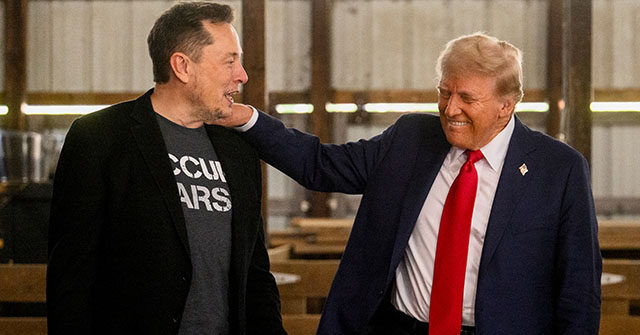On a recent episode of Fox News Channel’s “America Reports,” Rep. Ro Khanna (D-CA) highlighted the innovative capabilities of Elon Musk as the incoming head of the Department of Government Efficiency (DOGE). Khanna praised Musk for successfully disrupting the aerospace industry, specifically targeting established defense contractors like Lockheed Martin and Boeing. He argued that Musk’s approach had notably reduced the costs of launching rockets and deploying satellites, presenting a case for the possibility of introducing similar competitive dynamics within the defense sector. By fostering competition among the top defense contractors, Khanna believes it can lead to significant savings for American taxpayers and overall improvements in governmental spending.
Khanna emphasized the importance of a bipartisan effort to tackle wasteful spending within the military-industrial complex. His comments underscored the notion that both parties could unite in seeking fiscal responsibility, especially concerning defense expenditures. The congressman expressed a desire to collaborate with Musk and other innovators to bring about this change. By leveraging Musk’s experience and knowledge in fostering competition among the five prime contractors, Khanna envisions a restructured defense budget that could alleviate the financial burden on taxpayers while enhancing efficiency and effectiveness in defense spending.
Illustrating the need for reform, Khanna cited specific examples of excessive costs associated with contracts from Boeing and Lockheed Martin. One instance he mentioned involved Boeing charging the Pentagon a staggering $150,000 for simple soap dispensers, a clear case of wasteful expenditure. Similarly, he pointed out the issues surrounding overpayments related to breast pumps and the significant cost overruns tied to the F-35 program, which have drawn criticism for their financial mismanagement. These examples serve to amplify Khanna’s call for greater scrutiny and competition in the defense sector, indicating that there are substantial savings to be found if proper measures are taken.
Musk’s impact on the commercial space industry serves as a model that Khanna believes can—and should—be replicated in defense contracting. By removing barriers to entry and promoting new competitors in this space, government agencies could lower costs and improve service delivery. Khanna’s vision involves not just reducing expenditures but also encouraging technological advancements and innovation that can arise from a more competitive landscape. This could transform the defense sector, making it more agile and responsive to modern military needs, ultimately benefiting the U.S. military and its operations.
As Khanna pointed out, the concept of fostering competition is rooted in the belief that it engenders better performance and lower costs. By aligning the interests of contractors with accountability and effectiveness, the government can ensure a more responsible allocation of taxpayer dollars. His focus on inviting Musk to the table reflects a broader call for engaging with visionary leaders capable of pushing for changes that have eluded traditional approaches. This partnership could potentially reshape the procurement processes and challenge the long-standing dominance of major defense contractors.
In conclusion, Rep. Ro Khanna’s proactive stance on reforming defense contracting through competition and innovation is a compelling argument for controlling wasteful spending and enhancing efficiency. By invoking Elon Musk as a pivotal player in this endeavor, Khanna lays the groundwork for what could be a transformational approach to government procurement in the defense sector. As discussions about the future of military spending continue, the emphasis on accountability, competition, and efficiency could define a new era in how the U.S. government engages with defense contractors, ultimately aimed at benefitting American taxpayers and ensuring effective national defense strategies.

